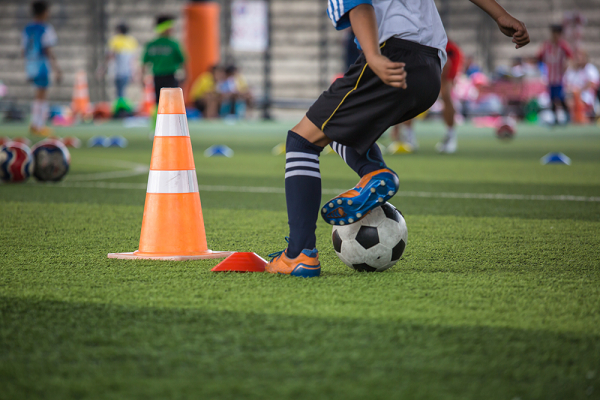Introduction:
One of the most important things to evaluate when considering enrolling in an athletic school is the fees. Athletic tuition fees can vary widely depending on many factors such as location, name, facilities, coaching staff, specific athletic programs offered, etc. Understanding these fees is important to making an informed decision matching your budget and sporting preferences.
First and foremost, geography has a significant role in cost determination. The cost of an academy is typically higher in wealthy urban areas than it is in more rural, smaller towns. In addition, the reputation and renown of the academy could also have an impact on the costs. Reputable academies that have produced elite athletes in the past might command greater fees because of their known demand and credibility.
Another important consideration is the academy’s facilities and amenities. Higher tuition is usually charged by academies that provide cutting edge training facilities, physiotherapy, dietary counselling, and mental coaching, along with comprehensive support services. Academies with highly skilled and experienced coaches typically command premium pricing, therefore the calibre and experience of the coaching staff also affect the cost.
Additionally, the academy’s particular training plans and sports programs may have an impact on the cost schedule. Part-time or general training programs are typically less expensive than intensive, full-time programs or those with specialist coaching for elite athletes.
Sports academy fees should be evaluated by taking into account the total worth in connection to your financial situation and personal objectives. Make sure you research each academy and are aware of everything it has to offer before choosing the best one for your athletic development.
Tips to Select the Best Sports Academy
Examine the Academy’s Reputation
Examine the academy’s standing in the sports industry. Seek feedback, endorsements, and accomplishment accounts from former and present athletes. In general, academies that have a track record of producing successful athletes and getting good reviews are more trustworthy. Verify the academy’s accreditation with the appropriate sports authorities and organizations as well.
Evaluate the Coaching Staff
One important consideration is the standard of coaching. Examine the credentials, background, and accomplishments of the coaching staff. Better advice and mentoring can be given by coaches who have experience training athletes at the highest levels of competition. In-person interviews or trial runs with coaches can also provide information about their efficacy and style of instruction.
Review the Resources and Facilities
Excellent facilities and resources are necessary for thorough training. Check out the training fields, gym, medical support, and other amenities at the academy by paying them a visit. Modern training equipment, injury prevention plans, and rehabilitation services are all provided by these facilities, which have a substantial positive impact on the growth and welfare of athletes.
Examine the Training Programs
A variety of training regimens catered to particular sports and ability levels are offered by different academies. Examine these programs’ curricula and organizational frameworks. Seek for academies that provide possibilities for competition, skill development workshops, and individualized training regimens. Make sure the training plan works with your responsibilities and lifestyle.
Examine the Value and Cost
Even while costs are a factor, pay attention to what you get in return. Examine the prices of different academies and what they cover: facilities, coaching, competition fees, travel expenditures, and other services. A higher cost could occasionally be justified by better employment prospects and higher-quality training.
Verify the Athlete-to-Coach Equivalent
A low ratio of athletes to coaches guarantees individualized care and skill full teaching. This ratio is crucial for individual growth since it enables coaches to concentrate on the advantages, disadvantages, and areas in which each athlete needs to improve. Find out how big the groups are usually and how much one-on-one coaching is offered.
Look for Networking and Exposure Opportunities
A sports industry-connected academy might offer beneficial networking and exposure opportunities. This include taking part in elite contests, holding scout showcases, and forming alliances with professional teams or organizations. For athletes hoping to pursue professional careers, these chances can be quite important.
Request Students Feedback
Speak with previous academy athletes to hear directly from them about their experiences. Alumni can offer frank feedback on the coaching staff’s quality, the academy’s advantages and disadvantages, and how effectively the school helped them prepare for professional sports careers.
Trust Your Instincts
Lastly, have faith in your intuition. An academy is probably a suitable choice if it seems right and fits with your requirements, values, and aspirations. It should be an environment that encourages, supports, and fosters your development as an athlete.
Conclusion
Choosing the top sports academy is an important choice that will affect an athlete’s growth, performance, and prospects for work in the future. A well-chosen school may assist athletes in reaching their goals by offering them networking opportunities, skilled coaching, and the required resources in addition to first-rate training.
It’s critical to begin choosing a sports academy with a clear grasp of your individual needs and goals. You can be sure you’re getting excellent instruction by looking up the academy’s reputation and assessing the credentials and experience of the coaching team. Furthermore, examining the resources and facilities contributes to confirming that the setting is favourable for thorough training and general wellbeing.
Make sure the training programs curriculum and structure match your goals by giving them some thought. Better skill development can be fostered by individualized attention provided by a low athlete-to-coach ratio. Although costs play a significant role, pay attention to the academy’s complete value proposition, which includes the quality of its training and supplementary services.
Additionally important are networking and exposure possibilities, particularly for individuals pursuing professional professions. You can make an informed selection by using the candid insights that alumni feedback can offer. In the end, follow your gut and select an academy where you are inspired and supported.
In conclusion, choosing a sports school with care and consideration can set a solid foundation for an athlete’s success by giving them the resources and setting they need to realize their full potential.

